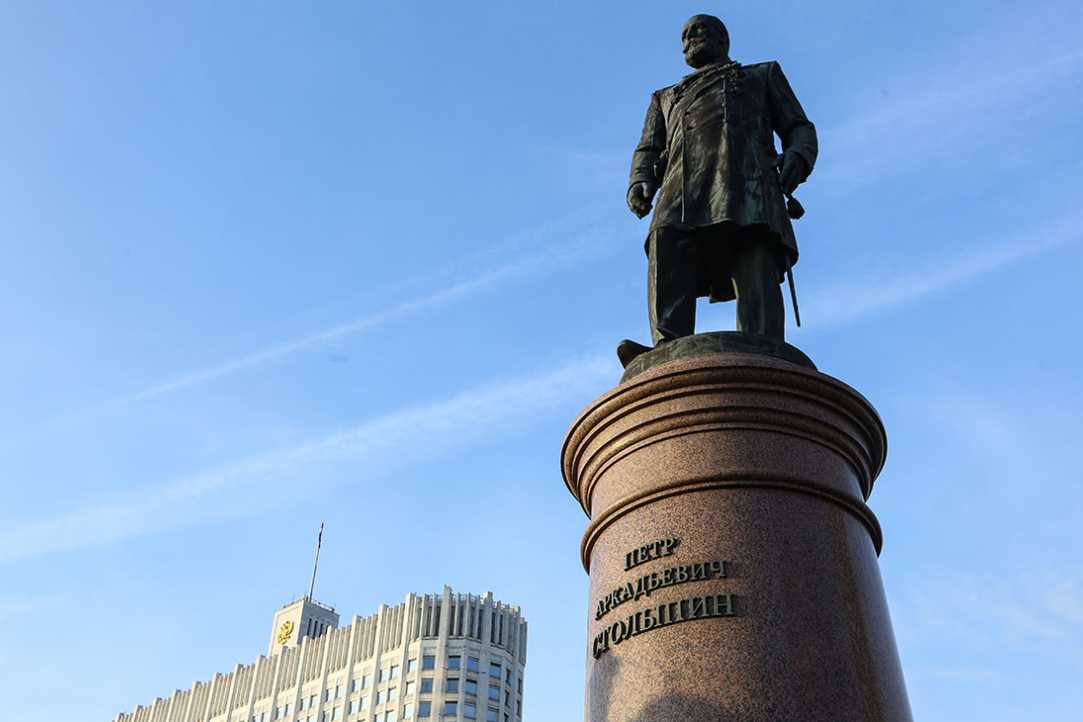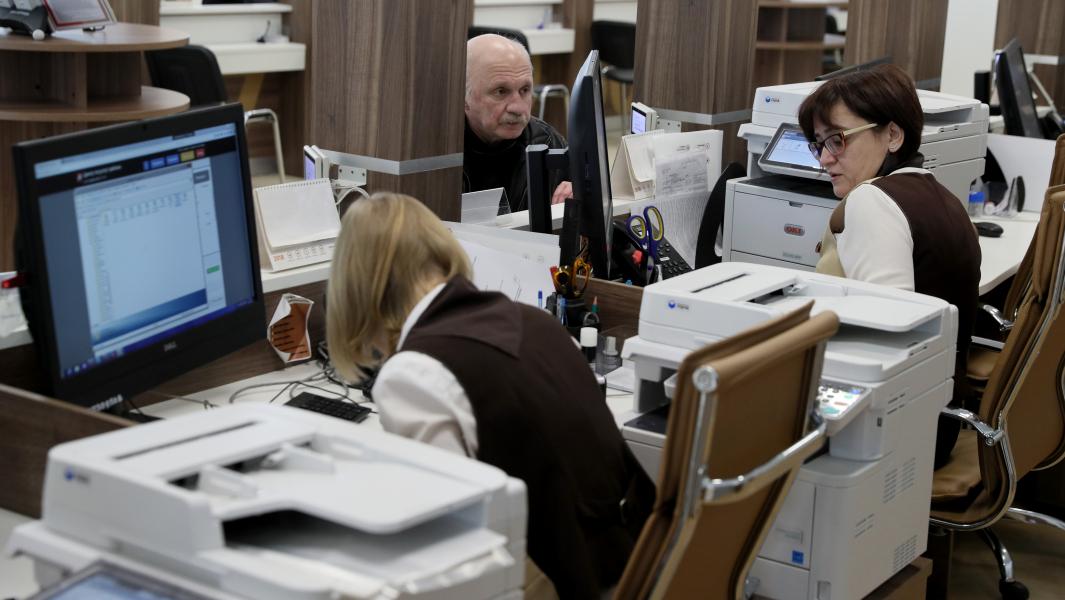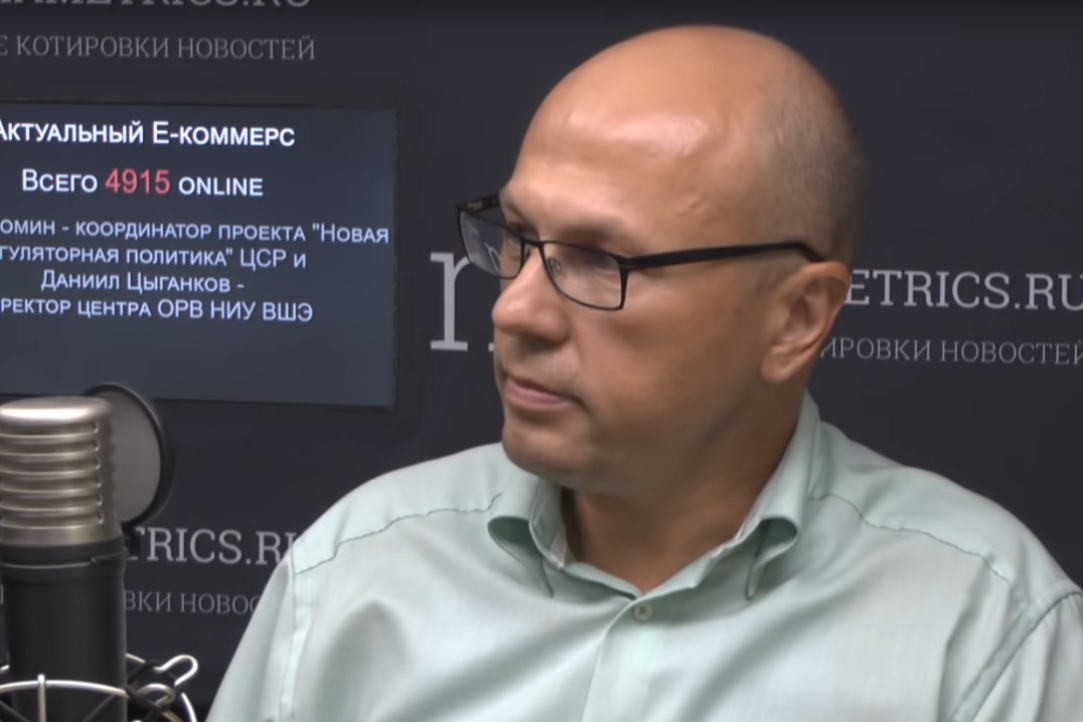Data digitalization is essential for digital transformation of the public sector
The development of document flow in the departments is heterogeneous. Evgeny Styrin commented on the research on digitalization of data conducted by the Polylog agency for the Kommersant.

The cycle of prohibitions: how to stop the regulatory guillotine from becoming a mockery
Public officials will inevitably overstate the benefits of regulation while private business will exaggerate the costs. Therefore, reformers need to agree on a system for gauging the consequences of either revoking or preserving current rules.
Expert opinion - Daniil Tsygankov to RBC.
We’ve caused a stir in Pskov Region, says HSE expert on elaboration of a socio-economic development strategy
The strategic session Socio-economic development prospects for Pskov Region up to 2035 has begun in Pskov. The Higher School of Economics is a key strategic partner in elaboration of the socio-economic development strategy for Pskov Region. Konstantin Golovshchinsky, Deputy Director of the Institute for Public Administration and Governance, NRU HSE believes that, as part of the session, its participants will work in groups to fill certain initiative matrices and then present them. They will work together to analyse the external environment of the Pskov Region and internal factors, determining strengths, weaknesses, opportunities and threats.

HSE specialists record a rise in uncompetitive state procurement contracts
According to the calculation of HSE specialists, the share of uncompetitive state procurement contracts stood at more than 63.7% in the first half of 2019. The Russian Finance Ministry asserts that the number of such procurement arrangements is falling, but HSE has included initially competitive but unsuccessful tenders in its calculation.

Throwing open the single window: multifunctional centres will now accept police statements
According to the presentation of a draft reform, prepared for the Government by the Ministry for Economic Development, it will be possible to register marriages, submit police statements and file court cases at multifunctional centres. It is being generally planned to pass to multifunctional centres all the powers of public authorities when it comes to interacting with the public and businesses. The reform assumes that reception areas in public institutions will be completely removed and the special institution of an authorised agent for applicants’ rights will be formed under the auspices of the multifunctional centres. Deputy Director of the Institute for Public Administration and Governance at NRU HSE Konstantin Golovshchinskiy is confident that, with the handover of the receipt and handling of such matters to the multifunctional centres, the authorities will have to approach their work with the general public in a more responsible manner. See the Izvestiya article for details and expert opinion.

Regulatory policy: how does it work?
On 23rd July, a new programme was released as part of the Topical E-Commerce cycle on Radio Mediametrix, entitled “Regulatory policy: How does it work?”
Director of the RIA Centre at NRU HSE Daniil Tsygankov and the New Regulatory Policy project coordinator at the Centre for Strategic Development Mikhail Komin discussed how new laws come into being and what route they take from conception to adoption, who can influence their value and importance for society, how this is done and at what stage, and how public institutions and organisations can influence law-making and lobbying interests.
IPAG RIA Centre Director gives interview to Zakonodatelstvo magazine
A discussion with Daniil Tsygankov on how the practice of regulatory impact assessment came into being, what approaches exist to implement it, how RIA procedures are applied in Russian and much more.

A punishing robustness: the nature of an administrative tribunal
The Centre for Strategic Developments is proposing a decisive regulatory reform, in line with the working materials of the Country Development Strategy 2018–2024, discussed at the CSD on 8 June. One of the ideas is to create an administrative tribunal of 7–9 people, which will do away with so-called “sticking points in the law”, meaning omissions in enactments, superfluous and contradictory norms. There is currently no effective means for their repeal, but such a tribunal would give impetus to deregulation in 3–4 years, the CSD believes.
An article in the Kommersant newspaper contains the opinions of Director of the NRU HSE IPAG RIA centre Daniil Tsygankov and other experts.
Import substitution comes knocking on Windows
Public authorities appear wholly unable to introduce import substitution into software. This is the second time this year that the procurement of computers with Microsoft software for the Internal Affairs Ministry has raised questions at the Federation Council. They believe that the department turned away without just cause from similar, domestically produced software. Experts point to a loophole: Officials are currently not prevented from procuring foreign computers, the manufacturers of which install the software themselves. The opinion of leading expert from the Institute for Public Administration and Governance of NRU HSE Dmitry Kozhevnikov and other specialists can be found in newspaper article in Kommersant.
Total Import Substitution Imposed on Mobile Operators
To ensure state sovereignty of the Russian Federation by as early as 2020, networks of Russian communications operators and data centres shall consist of 85% equipment domestic manufacturers. Such is the proposal contained in the "roadmap", drawn up by the working group under the Russian presidential administration.
Leading expert from the Institute for Public Administration and Governance at NRU HSE Dmitry Kozhevnikov notes after studying the document that analysis of the current situation in the industry within this "roadmap" seems somewhat partisan, as it concentrates on foreign economic factors, while the indicators and their dynamic appear contrived.
